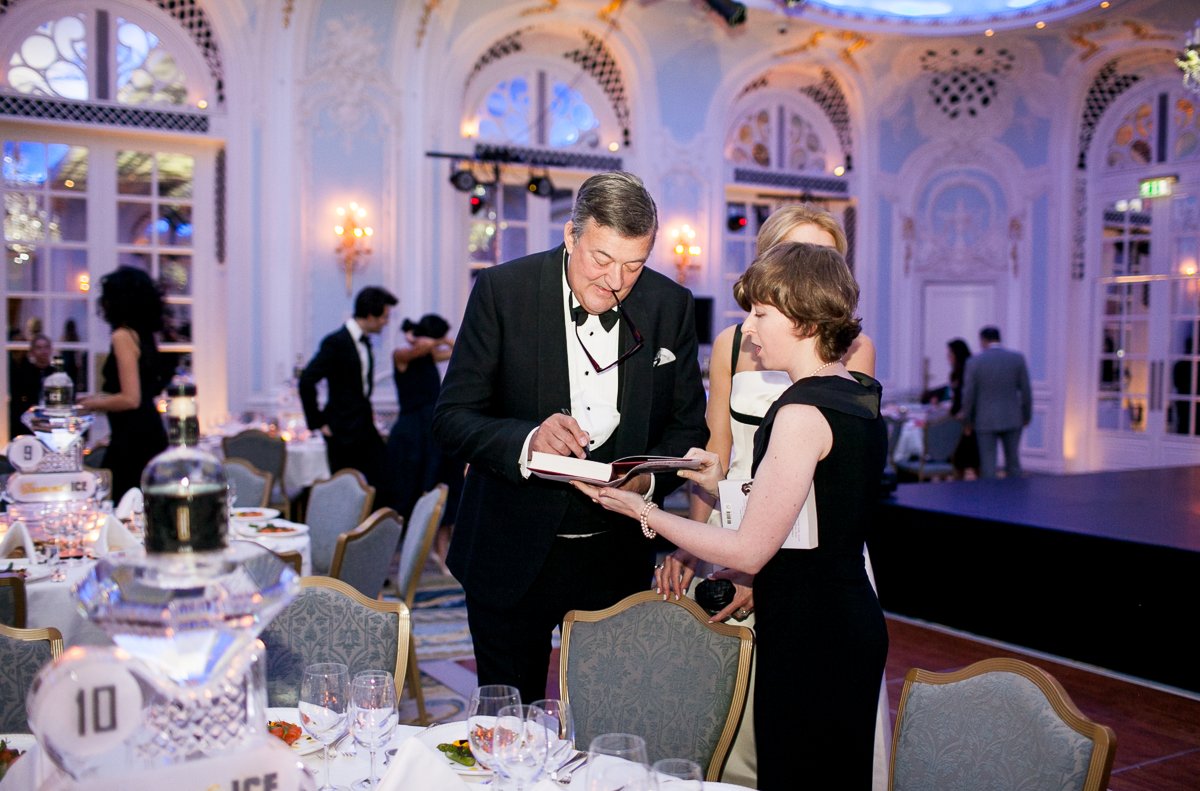Arina Gaba is a Trustee of Gift of Life and Fundraising Director of Podari Zhizn, our sister charity in Russia. She has been working in the charity sector for more than a decade and is absolutely happy helping others. Here Arina tells how she found herself enjoying charity work and how it all started with Gift of Life back in 2010.
You are a linguist and Orientalist, but you’ve found your place as a professional in the charity sector. You’re involved in fundraising and managing non-profits. Having originally started work with the WWF, you’ve now spent ten fruitful years working with Podari Zhizn. What is it that attracts you to charity work so much?
The first time I thought about charities was when I read Mendele Mocher Sforim’s Fishke der Krumer, which describes what it means to make a living as a beggar. The book helped me understand that just giving to beggars is a path to nowhere. At the same time, I was developing an interest in oncology, the quest for a cure for cancer, and the work of medical research organisations. Back then, I didn’t know anything about charity as a social phenomenon, and I was just looking for a job. I ended up with the World Wildlife Foundation (WWF) almost by accident, and it was then that I began to learn about fundraising.
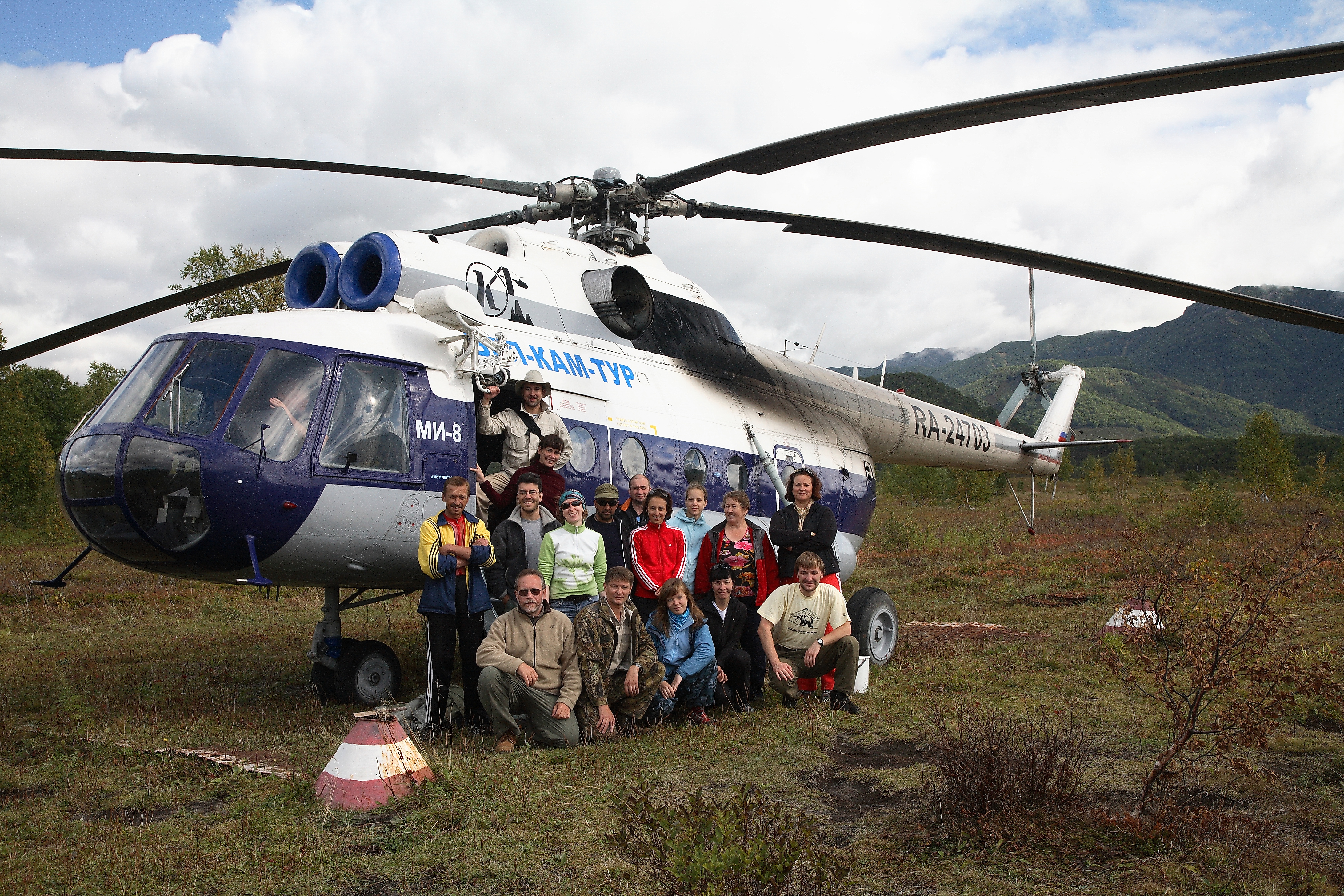
WWF donors’ trip to Kamchatka
After many years with the WWF and Podari Zhizn, I find it hard to imagine myself in the financial sector. Charity gives you a clear goal, and that’s extremely important, since to me, professional work is about results. The results of my work as Podari Zhizn’s Director of Fundraising are always clearly visible. On top of that, right now in Russia, the charity sphere offers unlimited opportunities for self-realisation and personal growth. I was very lucky to find a job that makes me constantly grow, and that leaves me deeply happy.
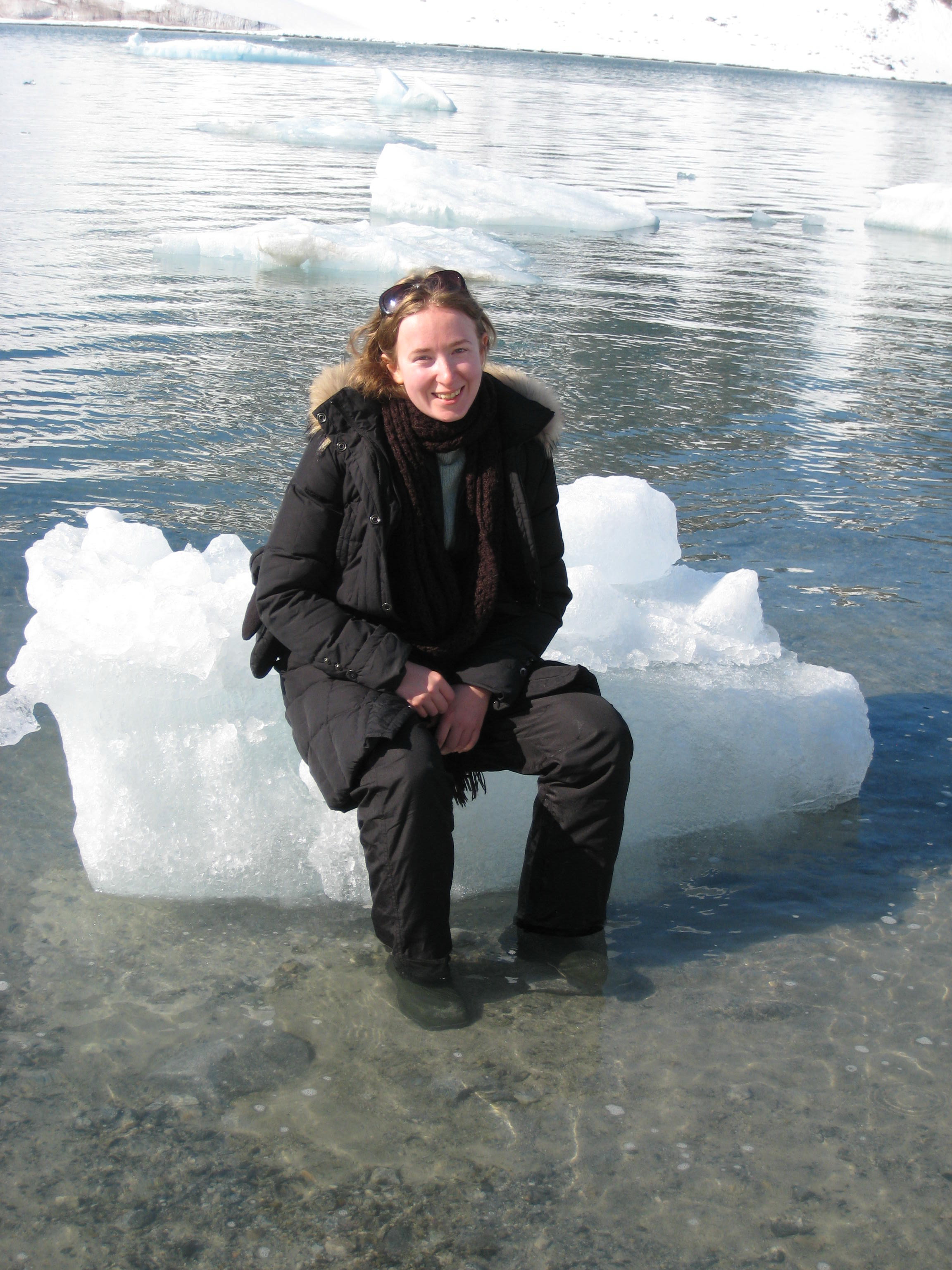
WWF donors’ trip to the Arctic
At what point did you realise that Podari Zhizn was where you belonged?
Having joined Gift of Life as an established fundraiser, I knew almost from the start that this was the place for me. It was scary to leave the WWF, it being a vast international organisation with enormous human resources and know-how. One of the reasons I decided to do something different was my interest in oncology. At the time, Podari Zhizn was the only major charity in Moscow working in that area.
I’ve come to see that my experiences with Podari Zhizn have taken my professional development to a whole new level. I’ve learned a lot about how the health care system works in Russia. Together with my colleagues, we’ve made huge progress, and run countless incredible fundraising projects. Over the years, these people have become my family. We think alike, and we enjoy spending time together both in and out of the office, even though we’re all very different. I also find it important to stay friends even with those who end up leaving the charity.
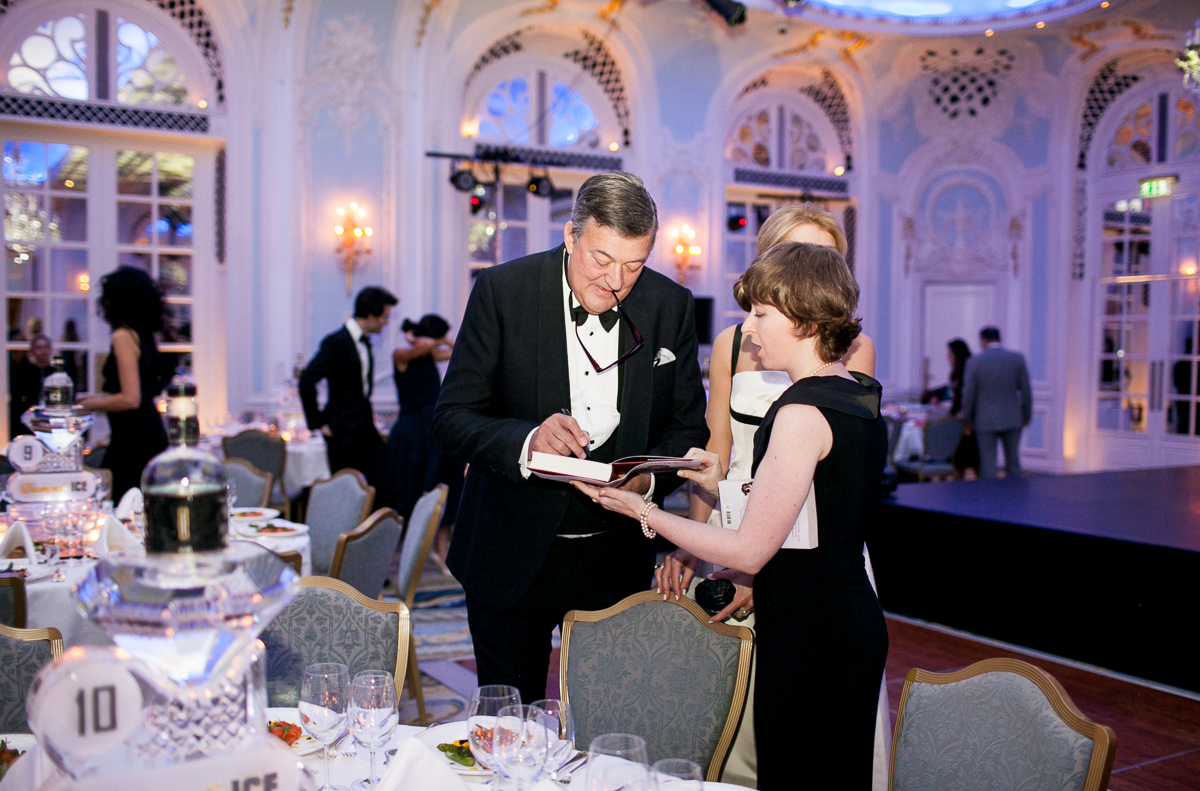
Arina and Stephen Fry at the Gift of Life Gala, 2015
Gift of Life was founded with a specific purpose—to support its sister charity Podari Zhizn through gathering funds and paying for the medicine Erwinase, which is unavailable in Russia. Could you tell us how this partner charity in Britain came to be?
Developing international fundraising and creating a sister charity in England were my first task in Podari Zhizn. Then-CEO Grigory Mazmanyants and I discussed the potential for fundraising in Britain, spoke to English lawyers and auditors, came to understand the need to create a legal entity for full-scale fundraising, and gradually put together a London team. This is where my past experience of life in England turned out to be helpful, together with my social circle—for example, Elena Tsirlina, who helped launch the charity, and then spent several years as one of our trustees. Elena also introduced me to Marina Mosyakova, our first ever volunteer, who now works as our operations manager, and is effectively my UK counterpart in everything to do with Gift of Life’s day-to-day activities.
Many others helped us during the initial stages, and it’s thanks to them that the charity was able to come into existence. It would take forever to list them all, but to this day I’m grateful to each and every one of them.
Our first efforts to gather funds for the children in our care took place even before the birth of our English “sister”, but its legal foundations were laid back in 2010. When the registration documents came through, it felt like I’d just walked through a solid wall. That was how unreal it felt. The first two and a half years were a very intensive period of putting everything together. I’d come to London every several weeks, and Gift of Life was my main project.
Right now, our other trustees are Simon Jennings, Vladimir Nikitin, Vadim Levin and Lyuba Galkina. Together, we’ve been able to assemble a collection of permanent donors and friends of Gift of Life, for whom charity is a natural, inherent part of their lives.
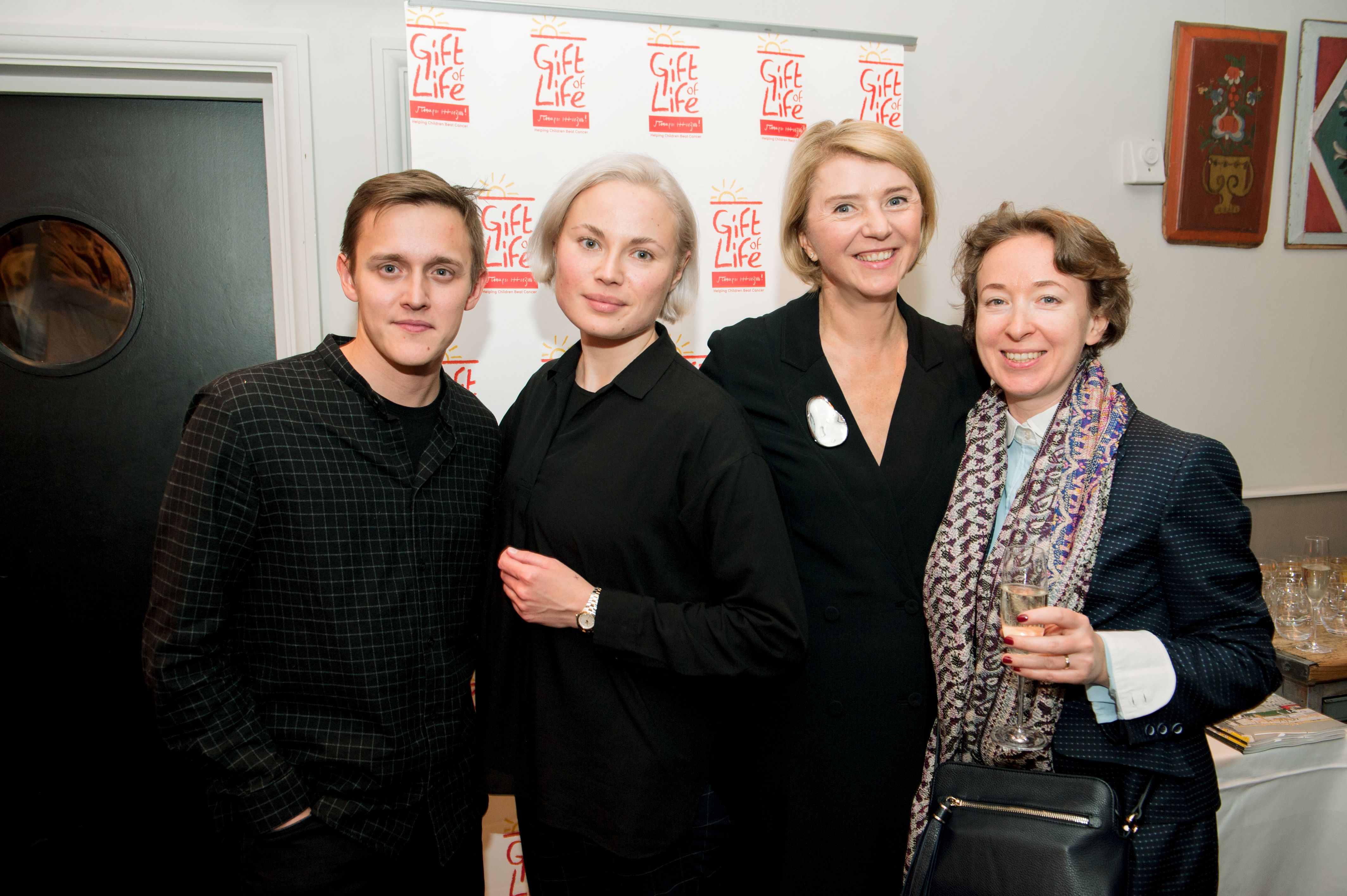
Arina with Lyuba Galkina, Marina Mosyakova and Kirill Uvarov at the Gift of Life event
In one interview, you said that a fundraiser must be capable of flexible thinking, quick reactions, and attention to detail. What qualities does a trustee have to have in order to manage a charity effectively?
In Gift of Life, the Board of Trustees is an active body which makes all strategic decisions. That’s why it’s very important for a trustee to be able to see the big picture, and to have access to unique resources—skills, experience, connections—which will help them successfully run the foundation and deal with the challenges involved in developing it. On the Board, I also represent Podari Zhizn as our sister organisation, so I need to be able to manage communications, and have an idea of the differences between running a charity in England and in Russia.
As someone immersed in the day-to-day work of our Russian sister charity, could you tell us about the main Podari Zhizn programs, which Gift of Life is helping to fund? What are our donors’ funds being spent on?
Originally, Gift of Life’s main purpose was to gather funds to buy the medicine Erwinase. At the time, we imported it from Britain through a single pharmacy which was licensed to bring it into Russia. Years later, the needs of Podari Zhizn’s children have expanded a great deal, meaning that the money collected by Gift of Life also has many new uses.
For a start, there are the unregistered foreign medications. These are the ones you can’t buy in Russia, but you can officially bring in for one-off use according to doctors’ prescriptions. The list of new, expensive, and effective medicines, mostly European ones, is constantly growing, and the demand for them is huge. We estimate that we need £3,000,000’s worth per year. Right now, that’s several times more than Gift of Life can cover. Even so, Gift of Life has been a great help to Podari Zhizn, and an irreplaceable source of European fundraising.
At the 2019 Gala Evening, Gift of Life donors helped gather the funds needed to pay for Oncaspar, a medication needed for anti-relapse treatment for several children in Gift of Life’s care, including eleven-year-old Liza Smolina from Lipetsk Oblast. Liza has acute lymphoblastic leukaemia, and while she badly needed the medicine, the only people who could pay for it were her mother and older brother, for whom it would have been far too expensive. But now Liza is in remission and continuing her treatment at the Dmitry Rogachev Centre in Moscow.
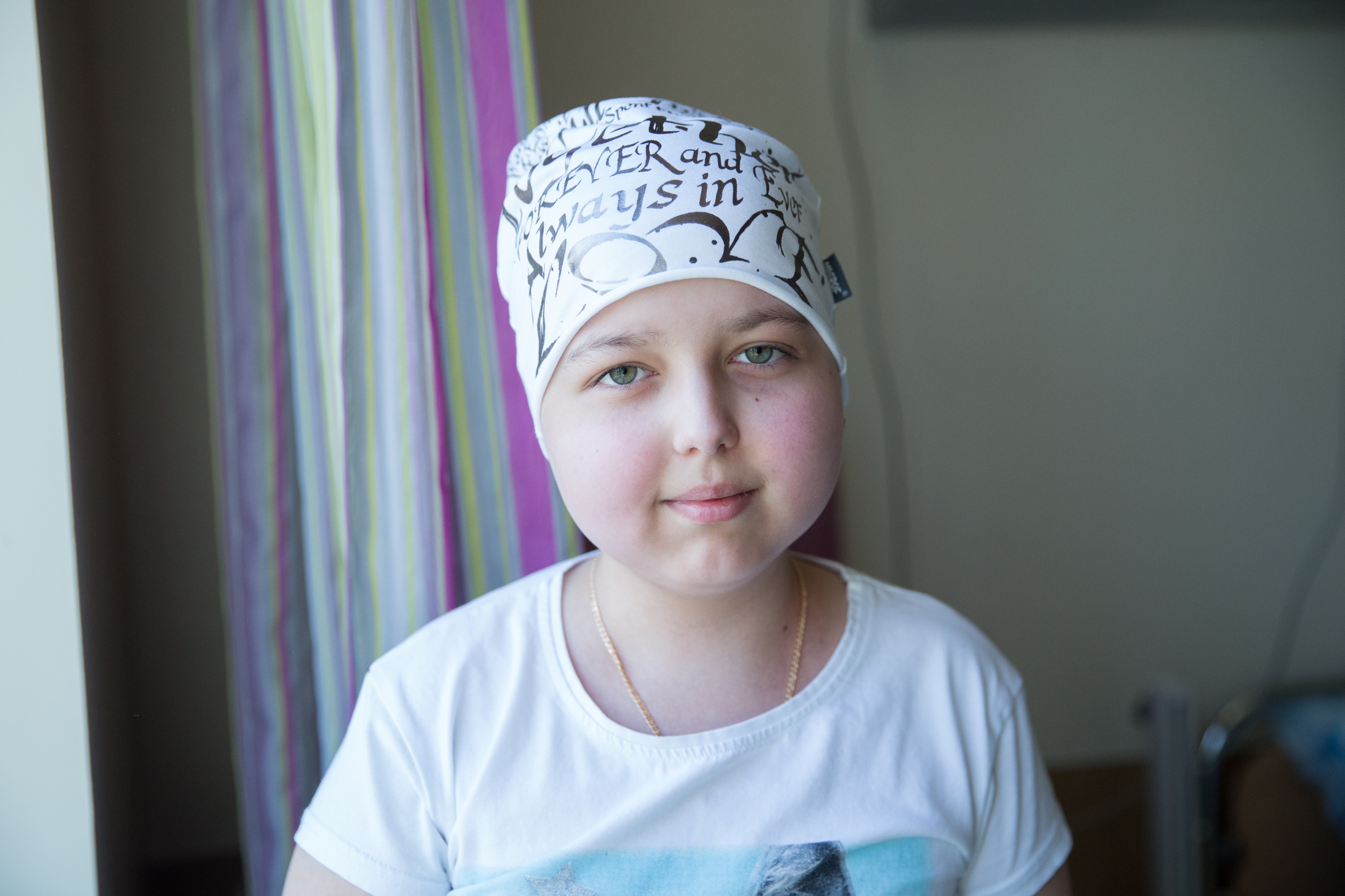
Liza Smolina at the hospital in Moscow
Another programme, which is funded completely by Gift of Life, is about bringing foreign doctors to Russian clinics. These are mainly surgeons from Germany, who perform very complicated operations at the Dmitry Rogachev Centre. While they’re here, they spend time with Russian doctors, exchanging information and providing additional consultations. Right now, this project is more relevant than ever, since it gives access to Western doctors’ expertise despite the temporary shutdown of the Foreign Treatment Programme, which Podari Zhizn was forced to suspend in July. The charity can’t rely on donations on the scale which we have right now. It was an extremely difficult decision, but for the time being, Podari Zhizn has no choice.
An essential part of Gift of Life’s aid is the search for bone marrow donors in foreign registries when Podari Zhizn hasn’t been able to find one in Russia. Here, we work closely with the Stefan Morsch Foundation in Germany. Treatment for a single child comes to around €20,000.
Another important programme is education for doctors. This involves Gift of Life paying for Russian doctors to visit international scientific conferences and medical forums. It also covers expenses for inviting foreign speakers to symposiums and conferences in Russia.
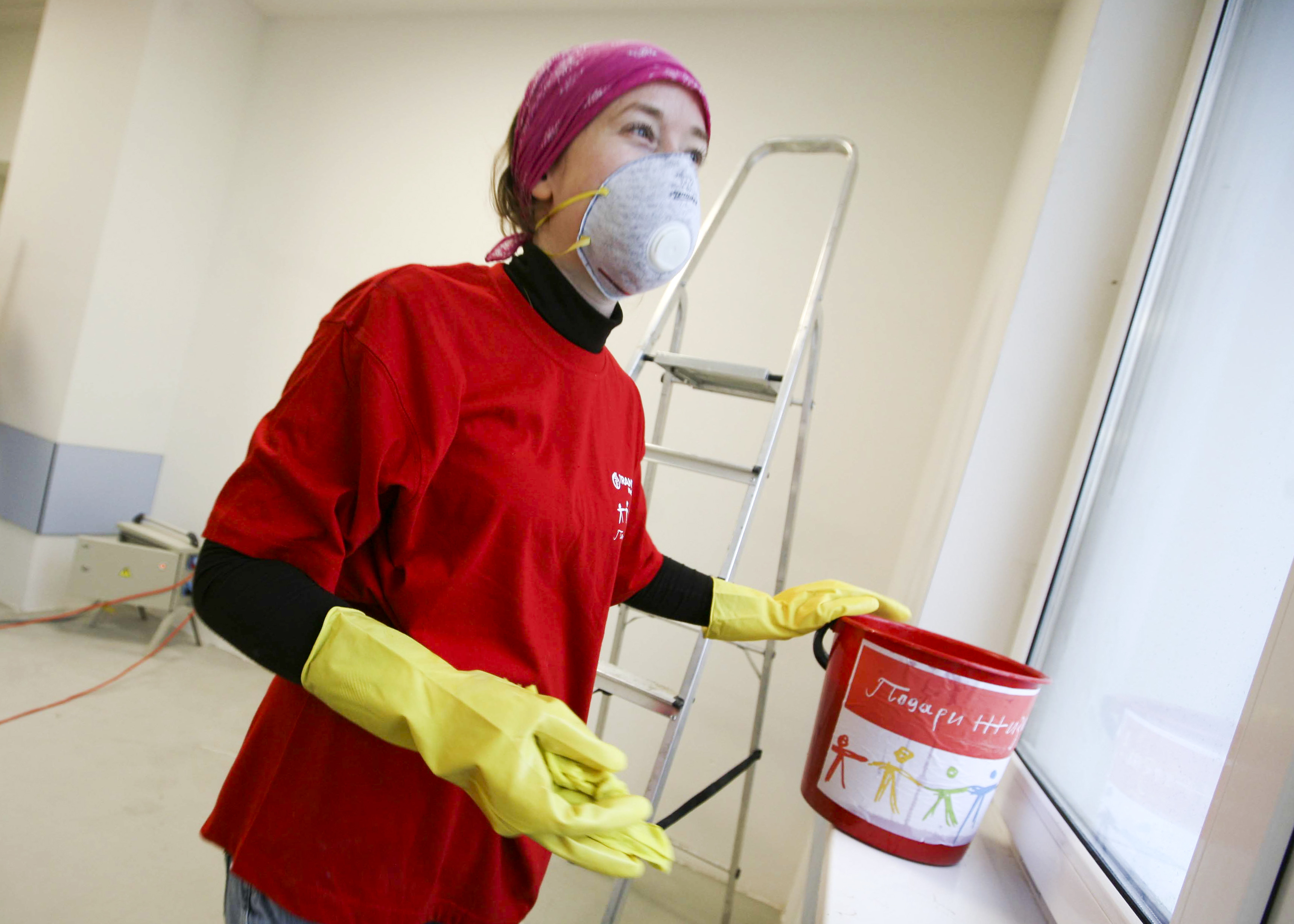
Spring clean at a hospital in Moscow
There’s also a third partner charity—Podari.Life in the USA. How does it help children with oncological diseases in Russia?
Right now, Podari.Life’s work is very similar to Gift of Life’s. It gathers funds to pay for foreign medicines for the children in Gift of Life’s care, and for support for the doctor education programme. It also pays for subscriptions to professional medical publications and online resources which Russian doctors need for their scientific work.
Interestingly, around two years ago, Podari.Life created a multi-currency crypto wallet, and began to accept donations in bitcoins and other cryptocurrencies. Since then, it’s managed to gather over 200 bitcoins and provide nearly $1,000,000 in converted currency. For now, of course, cryptocurrency can’t be used to pay for anything our children need directly, so Podari.Life converts bitcoins and spends the resulting dollars to pay for medications, doctors’ education expenses, and other needs.
In the USA and Britain, children are taught to give to charity from an early age. How would you explain to a Russian child why you have to help others this way?
Once upon a time, here is what I told my son: There are people whose life hasn’t worked out as well as yours, and who haven’t been as lucky. If you want to help these people even a little, then do it, because even a small amount of help can make someone’s life better. This kind of approach, with with a few small concrete steps as examples, teaches children personal responsibility and how their decisions influence the world around them.
Then, even if you don’t see results straight away, they will come. That happens in my work too. Sometimes, the children in our care spend several years being treated, and it can take a long time to gather the funds for their therapy. But then, every year at the Gift of Life Gala Evening in London, we see young people who were able to recover from their oncological illness thanks to our donors, and who’ve come to share the stories of their recoveries and to say thank you. They’re always very touching moments. Many people cry. I cry with them. To me, these aren’t just moving stories, but the results of my work in the flesh. To all the children being looked after by Podari Zhizn, Gift of Life, and Podari.Life, I wish a swift recovery, and a life where every minute is as happy as can be, with people who can support you by your side.
Photos kindly provided by Arina Gaba and the Gift of Life photo service.
We can help more children beat cancer together! Please, visit our Donate page to support.

